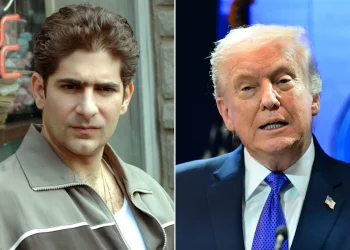President-elect Donald Trump has confirmed that he is open to his nominee for secretary of Health and Human Services, Robert F. Kennedy Jr., investigating the potential link between childhood vaccinations and autism. Trump made his comments during an interview with Meet the Press, where he was asked whether Kennedy would review the issue. “I’m open to anything,” Trump said, adding, “When you look at some of the problems, when you look at what’s going on with disease and sickness in our country, something’s wrong. I think somebody has to find out. If you go back 25 years ago, you had very little autism. Now you have it.”
John Leake, writing on Peter McCullough’s Substack, noted Kennedy’s long-standing concern about the rise in autism cases, which began to increase significantly in the late 1980s. This uptick coincided with the passage of the 1986 National Childhood Vaccine Injury Act, which granted vaccine manufacturers immunity from liability for injuries caused by their products. According to Leake, “children may receive up to 24 immunizations by age 2 and up to 5 injections in a single visit.” He raised the possibility that such an influx of antigens could provoke inflammatory responses harmful to developing brains.
Leake also criticized opposition to investigating the vaccine-autism link, writing, “In my experience as a true crime writer, whenever individuals or groups object to a suspicious incident being merely investigated, one can be virtually certain that such individuals or groups are concealing something. What reasonable person who cares about kids would object to such an investigation?”
Kennedy himself has previously detailed the potential connection, citing troubling incidents, such as the case of Poul Thorsen, a co-author of CDC studies downplaying the vaccine-autism link. Thorsen was later charged with wire fraud and embezzlement involving over $1 million in research grants. Kennedy accused Thorsen of fabricating data to mislead the public, which laid the groundwork for dismissing thousands of autism-related vaccine injury claims in the United States Court of Claims.
In one instance, Kennedy described how CDC scientists “deliberately manipulated the final dataset to prevent public disclosure of the decrease in autism,” as it conflicted with their conclusion that thimerosal—a mercury-based preservative used in vaccines—was not linked to autism. Despite these controversies, thimerosal remains a point of contention in vaccine safety discussions.
In another notable case, Michigan parents David and Brenda McDowell reported their healthy triplets became autistic within hours of receiving vaccinations. In a widely circulated video, the couple described how their children experienced a sudden loss of reflexes, engagement, and basic developmental skills. “It was as if she was blind, and deaf,” Brenda said of one of their daughters, adding, “All she did was stare at the ceiling.” The McDowells later learned the vaccine their children received had been contaminated and subsequently recalled after causing a child’s death. Despite this, they were told they had no legal recourse.
The McDowell family’s account adds to the growing call for transparency and further investigation into vaccine safety. Critics argue that the medical community has resisted such investigations, leaving critical questions unanswered. Jane Orient, M.D., former president of the Association of American Physicians and Surgeons, emphasized the need for robust research, saying, “We just really don’t know [the causes] and we’re not doing the research that is needed.”
While Trump and Kennedy’s openness to investigating this issue is gaining attention, it remains a deeply polarizing topic, with strong opinions on both sides. Advocates like Kennedy and parents affected by autism continue to press for greater accountability and transparency in vaccine safety research.
 Telegram is where we really talk. Don't miss out!
Telegram is where we really talk. Don't miss out!








